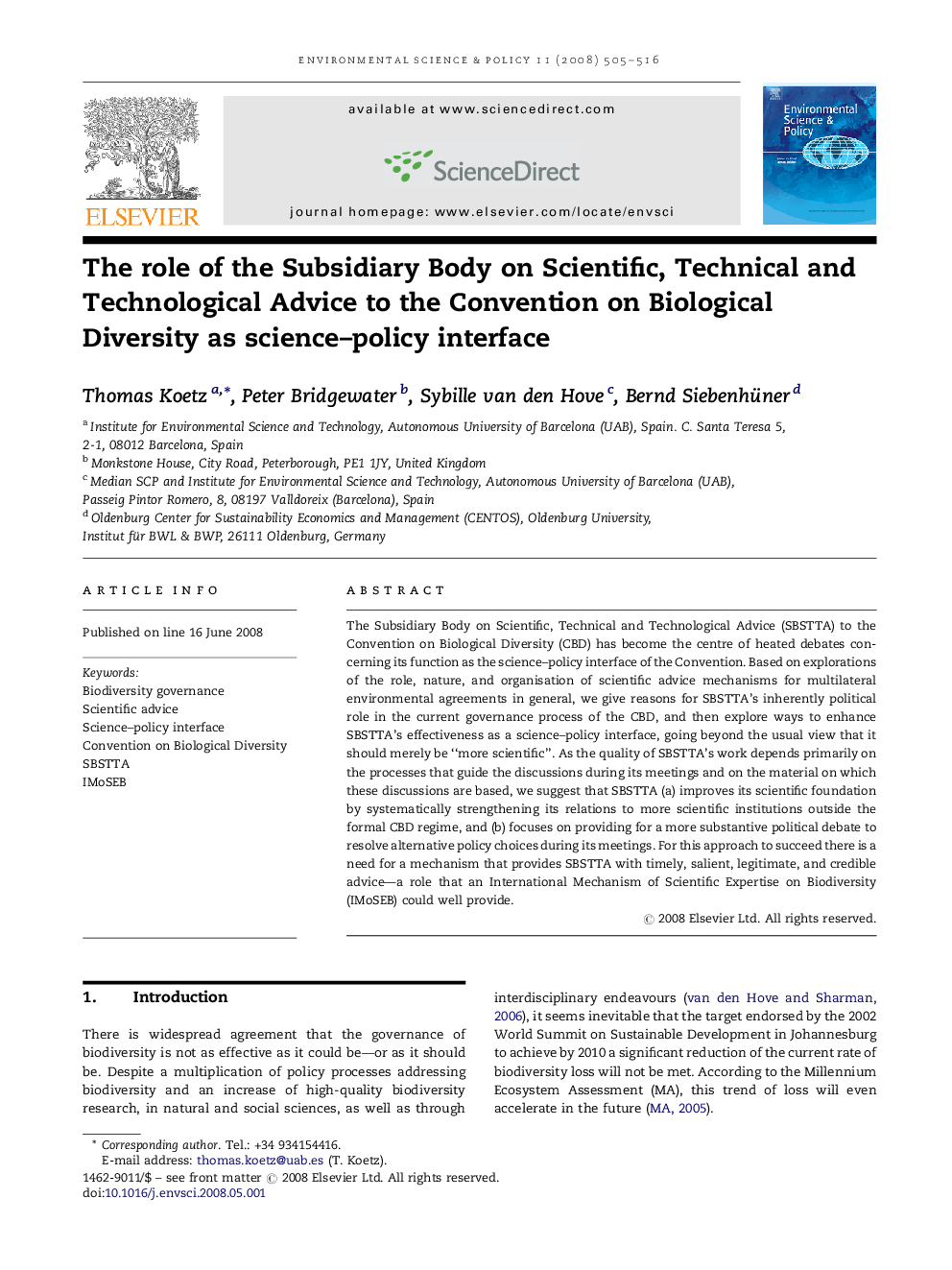| Article ID | Journal | Published Year | Pages | File Type |
|---|---|---|---|---|
| 1054179 | Environmental Science & Policy | 2008 | 12 Pages |
The Subsidiary Body on Scientific, Technical and Technological Advice (SBSTTA) to the Convention on Biological Diversity (CBD) has become the centre of heated debates concerning its function as the science–policy interface of the Convention. Based on explorations of the role, nature, and organisation of scientific advice mechanisms for multilateral environmental agreements in general, we give reasons for SBSTTA's inherently political role in the current governance process of the CBD, and then explore ways to enhance SBSTTA's effectiveness as a science–policy interface, going beyond the usual view that it should merely be “more scientific”. As the quality of SBSTTA's work depends primarily on the processes that guide the discussions during its meetings and on the material on which these discussions are based, we suggest that SBSTTA (a) improves its scientific foundation by systematically strengthening its relations to more scientific institutions outside the formal CBD regime, and (b) focuses on providing for a more substantive political debate to resolve alternative policy choices during its meetings. For this approach to succeed there is a need for a mechanism that provides SBSTTA with timely, salient, legitimate, and credible advice—a role that an International Mechanism of Scientific Expertise on Biodiversity (IMoSEB) could well provide.
